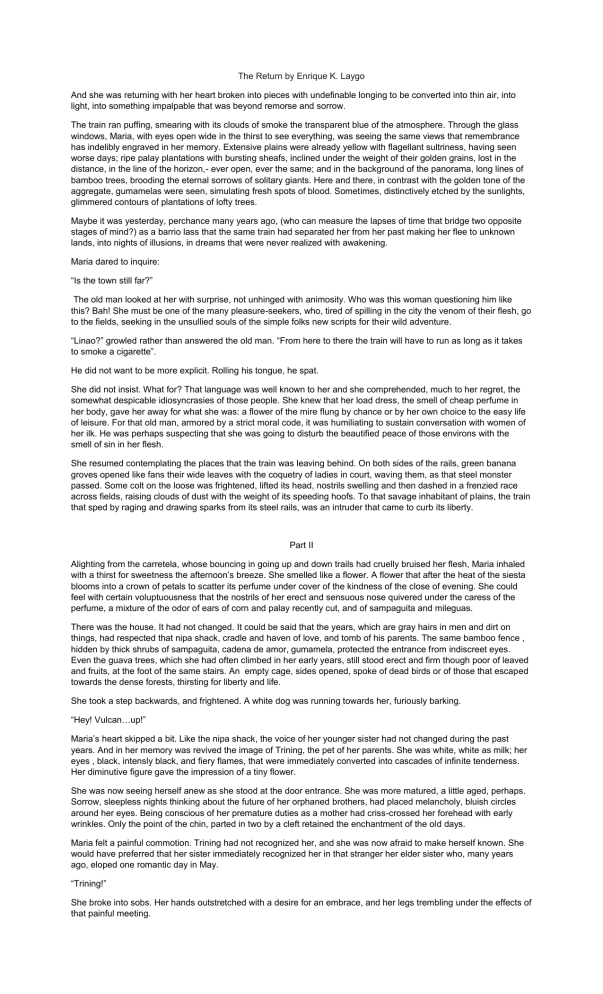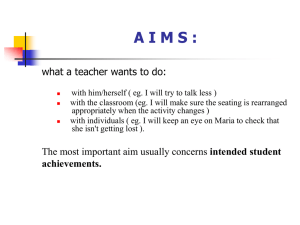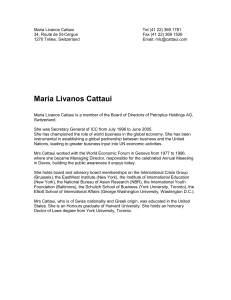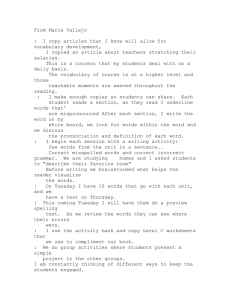
The Return by Enrique K. Laygo
And she was returning with her heart broken into pieces with undefinable longing to be converted into thin air, into light, into something impalpable that was beyond remorse and sorrow.
The train ran puffing, smearing with its clouds of smoke the transparent blue of the atmosphere. Through the glass windows, Maria, with eyes open wide in the thirst to see everything, was seeing the same views that remembrance has indelibly engraved in her memory. Extensive plains were already yellow with flagellant sultriness, having seen worse days; ripe palay plantations with bursting sheafs, inclined under the weight of their golden grains, lost in the distance, in the line of the horizon,- ever open, ever the same; and in the background of the panorama, long lines of bamboo trees, brooding the eternal sorrows of solitary giants. Here and there, in contrast with the golden tone of the aggregate, gumamelas were seen, simulating fresh spots of blood. Sometimes, distinctively etched by the sunlights, glimmered contours of plantations of lofty trees.
Maybe it was yesterday, perchance many years ago, (who can measure the lapses of time that bridge two opposite stages of mind?) as a barrio lass that the same train had separated her from her past making her flee to unknown lands, into nights of illusions, in dreams that were never realized with awakening.
Maria dared to inquire:
“Is the town still far?”
The old man looked at her with surprise, not unhinged with animosity. Who was this woman questioning him like this? Bah! She must be one of the many pleasure-seekers, who, tired of spilling in the city the venom of their flesh, go to the fields, seeking in the unsullied souls of the simple folks new scripts for their wild adventure.
“Linao?” growled rather than answered the old man. “From here to there the train will have to run as long as it takes to smoke a cigarette”.
He did not want to be more explicit. Rolling his tongue, he spat.
She did not insist. What for? That language was well known to her and she comprehended, much to her regret, the somewhat despicable idiosyncrasies of those people. She knew that her load dress, the smell of cheap perfume in her body, gave her away for what she was: a flower of the mire flung by chance or by her own choice to the easy life of leisure. For that old man, armored by a strict moral code, it was humiliating to sustain conversation with women of her ilk. He was perhaps suspecting that she was going to disturb the beautified peace of those environs with the smell of sin in her flesh.
She resumed contemplating the places that the train was leaving behind. On both sides of the rails, green banana groves opened like fans their wide leaves with the coquetry of ladies in court, waving them, as that steel monster passed. Some colt on the loose was frightened, lifted its head, nostrils swelling and then dashed in a frenzied race across fields, raising clouds of dust with the weight of its speeding hoofs. To that savage inhabitant of plains, the train that sped by raging and drawing sparks from its steel rails, was an intruder that came to curb its liberty.
Part II
Alighting from the carretela, whose bouncing in going up and down trails had cruelly bruised her flesh, Maria inhaled with a thirst for sweetness the afternoon’s breeze. She smelled like a flower. A flower that after the heat of the siesta blooms into a crown of petals to scatter its perfume under cover of the kindness of the close of evening. She could feel with certain voluptuousness that the nostrils of her erect and sensuous nose quivered under the caress of the perfume, a mixture of the odor of ears of corn and palay recently cut, and of sampaguita and mileguas.
There was the house. It had not changed. It could be said that the years, which are gray hairs in men and dirt on things, had respected that nipa shack, cradle and haven of love, and tomb of his parents. The same bamboo fence , hidden by thick shrubs of sampaguita, cadena de amor, gumamela, protected the entrance from indiscreet eyes.
Even the guava trees, which she had often climbed in her early years, still stood erect and firm though poor of leaved and fruits, at the foot of the same stairs. An empty cage, sides opened, spoke of dead birds or of those that escaped towards the dense forests, thirsting for liberty and life.
She took a step backwards, and frightened. A white dog was running towards her, furiously barking.
“Hey! Vulcan…up!”
Maria’s heart skipped a bit. Like the nipa shack, the voice of her younger sister had not changed during the past years. And in her memory was revived the image of Trining, the pet of her parents. She was white, white as milk; her eyes , black, intensly black, and fiery flames, that were immediately converted into cascades of infinite tenderness.
Her diminutive figure gave the impression of a tiny flower.
She was now seeing herself anew as she stood at the door entrance. She was more matured, a little aged, perhaps.
Sorrow, sleepless nights thinking about the future of her orphaned brothers, had placed melancholy, bluish circles around her eyes. Being conscious of her premature duties as a mother had criss-crossed her forehead with early wrinkles. Only the point of the chin, parted in two by a cleft retained the enchantment of the old days.
Maria felt a painful commotion. Trining had not recognized her, and she was now afraid to make herself known. She would have preferred that her sister immediately recognized her in that stranger her elder sister who, many years ago, eloped one romantic day in May.
“Trining!”
She broke into sobs. Her hands outstretched with a desire for an embrace, and her legs trembling under the effects of that painful meeting.
“You, Maria, you are here?”
They embraced tightly, passionately. Trining’s fingers played with the hair of her sister. Her lips, red lips, ardent lips, lips of fire. Did not know how to separate her cheeks from the mouth of the traveler. Afterwards, she carried her, as if in flight, up the stairs, crying and laughing at the same time. Vulcan looked at the two sisters, with eyes still furious, and then sat on his hind legs, growling.
Part III
“You ask me how my life was? It was like that of the others of my kind. Days of bonanza. Tempestuous nights, caresses of fortune, and floggings by fate. This, in a nutshell, is my history. I went through towns dispensing smiles never thinking of mothers, wives, sisters, daughters, who perhaps were to cry because of them. Sometimes, I triumphed, perhaps, I believed myself queen and sovereign of my small world. The awakening was always painful.
Was I happy? Was I content? I lacked nothing, it is true, but I felt there in the depths of my conscience, that my nights of solitude, spoke to me of my bygones, remembrances of a distant infancy, lost in the haziness of what never returns. Then, the memory of our mother.”
Trining was hearing the narration, feeling that a knot was forming in her throat. There was the history, bloody and sad, of her poor sister; so graphic and real it seemed, she was living again the terrible moments.
“And now,” continued Maria, “ Maria, “ I want to return to this nook of the earth that I should never have abandoned, thirsty of love, of true love, to relive my infancy, to breathe this pure breeze and know these simple souls, without specks in their crystal transparence.
Trining stood up, terrified.
“ Return? Return here anew? Impossible, Maria, impossible.”
“And why?”
“ It is prohibited to you by your mother who is in heaven. Listen Maria: She left me an order before dying and It was this: my daughter, take care of your brothers. If the absentee returns
– she did not even want to mention your name - drive her from your house, so that my other children will not be contaminated.”
Maria paled with horror. She was banned from that home. Her mother, whom she had offended so much, had ordered her perpetual banishment from the grounds of the parents. And she, who wanted to reform herself, return to tranquil life of the old days, would see herself obliged to beg for money at the expense of her flesh!
Her sister, trembling continued to her violently.
“ Go, go before your brothers return from school. Go because your mother orders you. Continue your life if you want; reform, if that is what you prefer, but leave, you have no place…..Go, for God’s sake.”
Maria was in the mood for rebellion. So, her mother, dead and all, continued to persecute her? Well, it would not be so. She would prefer to die first, to end once and for all that accursed life.
She tried to leap from the window. Trining, quick as the thought of her sister, caught her by the fringe of her dress.
“ What are you doing, you unfortunate? Maria, my God, regain your senses. What you intended to do is wrong, it is a sin.”
Weakened under the weight of such conflicting emotions, Maria let herself drop on the chair. A strange lassitude was taking possession of her, and she felt everything swirling around her.
Trining, a sister after all, encircled her waist with her hands, and kissed her soundly. Again her fingers began to play with her s ister’s hair. And again, her lips, red and ardent lips, reposed on the cheeks and mouth of her sister.
Afterwards, she stood up determined.
“Look, Maria, if our mother banned you from your home, I, in contravention to her mandate, receive you…”
Maria stood up with a leap; she rushed to her sister, and smothered her with kisses, drowned in a sea of happiness.
Answer the following questions in a complete sentence.
1. What place is the train running through? Cite phrases to support your answer.
2. Where is the girl probably going? Support your answer with phrases from the story.
3. What has probably happened to Maria? How does she feel about what has happened to her?
4. What is the old man’s attitude toward her? What does this show about her?
5. What do you think is the author’s purpose in describing the landscape in detail?
6. How does Maria feel about the place she has arrived at?
7. Is your answer to question 2 of part 1 correct? At which part of the story does the reader know for sure that, indeed, Maria has gone home?
8. What is probably the purpose of mentioning in detail the guava tree? The empty cage and dead or escaped birds? The unchanged nipa hut structure and bamboo fence? The physical appearance of Trining?
9. 9. Is your guess to question 3 in part 1 correct? What phrases give away the answer?
10. 10. After her tempestuous life away from home, what does Maria plan to do? How does her sister react to her? Why?
11.
11. How does Maria react to the information she gets about her mother’s wish?
12. 12. How does Trining show that she still has a bond with her sister?
13. 13. If you were Maria would you react in the same manner? Why or why not?
14. 14. If you were Trining would you do what she did?


